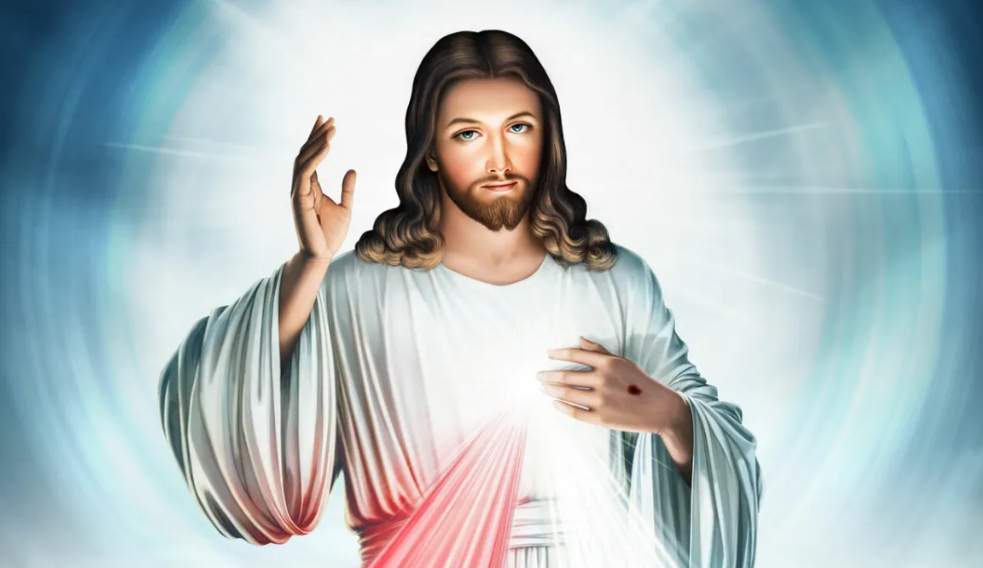DIVINE MERCY SUNDAY
First Reading: Acts 2:42-47; Psalm: 118. R. v. 1; Second Reading: 1Pt 1:3-9; Gospel: Jn 20:19-31
CHRIST’S GIFT TO THE CHURCH
BY FR VALENTINE NNAMDI EGBUONU, MSP

Today is the first Sunday after Easter. And every first Sunday after Easter the Church celebrates the Divine Mercy Sunday as revealed by Christ to the Polish Nun St Maria Faustina Kowalska who was canonised by Saint Pope John Paul II in the year 2000. Following her canonization, the Polish Pope declared the second Sunday of Easter as Divine Mercy Sunday respecting the revelation of Christ to the Polish Nun who recorded all her visions in her diary. This diary known as ‘The Diary of St Maria Faustina Kowalska has become a guiding handbook to the devotees of Divine Mercy today.
Whenever we celebrate the Divine Mercy Sunday, we tend to think that this celebration is solely about the inexhaustible mercy of God. But what we celebrate today is more than God’s unfathomable mercy if only we understood that the paschal mystery of Christ and his appearing to his apostles in the gospel of today revealed the greatest gift Christ gave to his bride the Church. And what is this gift? The seven sacraments.
The sacrament is the soul of the Church. There is no Church without the sacraments for the reason that it is through the seven sacraments that Christ is present to his Church. When Christ was pierced by the side as he hung on the cross, blood and water gushed out. The water symbolised our baptism while the blood symbolised the Eucharist. So Christ gifted the Church the sacraments of baptism and the Eucharist as he hung on the cross. Baptism incorporates us into the Church while the Holy Eucharist nourishes our soul.
When Jesus appeared to his apostles in the gospel reading of today, he said to them “Peace be with you.” Peace is one of the twelve fruits of the Holy Spirit. It is the tranquillity of the soul that dispels anxiety and fear. The word “Peace be with you” is said to us at our confirmation to dispel every fear. At Pentecost, the apostles will receive this gift and match out boldly to bear witness to Christ by their lives.
Jesus would go on again to breathe on his apostles saying, “Receive the Holy Spirit. If you forgive the sins of any, they are forgiven; if you retain the sins of any, they are retained.” This is where and when the Church received the power to forgive sins in the sacrament of penance that brings healing to our souls.
It was at the Last Supper that Jesus instituted the ministerial priesthood when he said to his apostles “Do this in memory of me.” He would on the cross give birth to the Church when his side was pierced. For just as he fashioned Eve from the side of Adam while Adam was asleep, so he fashioned the Church from his side by the gift of his blood and water as he slept in death on the cross. Little wonder the Church is called the bride of Christ; a divine marriage that cannot be dissolved. Nothing perfectly explains the indissoluble bond of marriage than this.
So whenever we celebrate the feast of the Divine Mercy, we should always remember that this feast encompasses the paschal mystery of Christ and how Christ birthed his Church through his salvific action. The feast of the Divine Mercy should therefore help us deepen our faith in the sacraments. And more particularly, the sacrament of penance that invites us to ask and trust in God’s mercy and become agents of that divine mercy which we have freely received.
The message of Mercy which Christ revealed to St Maria Faustina can be summarised by simply remembering the first three letters of the English alphabets: A, B, and C. This is what they stand for. A: Ask for God’s mercy. B: Be merciful to others. And C: Confidence and complete trust in God. This message simply means that as members of the Church who have complete trust in God’s mercy; we should draw from God’s divine mercy which we have freely received and show mercy also to those who may have wronged us. So, if we are not merciful just like God our Father, then we are not agents of God’s mercy.
So on this day, we are all invited to be merciful not only through forgiveness but also through charity as did the early Christians who lived the common life sharing what they have according to the needs of one another. We can do this by feeding the hungry, giving drink to the thirsty, clothing the naked, sheltering the travellers, visiting the sick and burying the dead. In this way, we can work out our salvation. For any charitable work done to a brother or sister is done to God.
PRAYER FOR THE DAY
Merciful Jesus, make us agents of your love and mercy. Amen



Amen